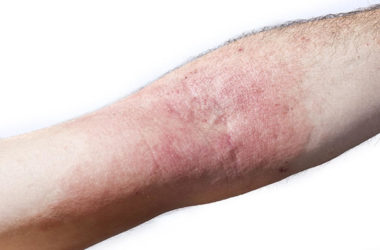Our brain is able to remember important numbers. From your phone number to your favorite artist’s birthday. However, how many important numbers do you know that can help with your health? Well, this is mostly because we aren’t aware about these numbers. Unless we ask our doctors about it or studied a medical course, these numbers will remain oblivious to us. We want you to be informed. Here are important health numbers that every woman needs to know.
Blood Pressure
Your Blood Pressure unlike most illnesses comes silently. You will never really know if your blood pressure is rising unless it is incredibly high or low that you feel dizzy, tired and so on. You don’t really know if your blood pressure is fluctuating. The numbers in your blood pressure consist of your diastolic and systolic scores. These numbers correspond to the number of pressures in your arteries and heartbeat. The optimum goal for women is 120/80 and lower. If you tend to go above this a lot, go to your doctor. This can be a sign of heart issues. This is not something to be taken lightly high blood pressure are known as silent killers.
Cholesterol
A lot of us are unaware of our cholesterol levels and how we can get them. You can get your cholesterol level checked in your local clinic. It is important to get this checked at least once a year and more if your family is prone to heart diseases. Your cholesterol score is composed of two numbers. The LDL also known as the bad cholesterol and the HDL or the good cholesterol. The target number should be below 200. The LDL should be below 100 and the HFL above 60. Anything beyond this range can put you at risk of heart attacks or heart diseases. If you were diagnosed before with high cholesterol. Get it checked regularly to see if there are any fluctuation or changes.
TSH
TSH or thyroid stimulating hormone is an important number to get checked regularly. As its name suggests this is a hormone that affects the thyroid. A huge percent of women will experience some kind of thyroid problem in the lifetime. There are different symptoms of thyroid problems such as weight gain, weight loss, lethargy, moodiness, chronic pain, constipation, irritable bowels, tremors and so much more. Your thyroid affects so much, making it an essential part of your health. TSH levels can be checked from your blood. You can get this checked in any local hospital or clinic. Your TSH number should be between 0.4 to 4.5 milli units per liter. You don’t really need to get this test annually unless you already struggle with thyroid problem. If you ever experience any unexplained weigh issues, digestive problems, pain and lethargy, you should ask your physician if you should take a TSH test.
Blood Sugar
Diabetes has become one of the biggest health risks this decade, knowing your blood sugar levels is imperative. Blood sugar test, also known as A1C can help determine your glucose levels. This test will tell If your body is able to appropriately regulate sugar. Once you hit a number that is beyond the essential level, you are prone to developing diabetes. You want a score that is 5.7 or even less. If you get a score between 5.7 to 6.4 you are considered close to becoming diabetic. Perform this test annually. If your family is prone to diabetes, do this test twice a year.
Daily Caloric Needs
A lot of women are guilty of not knowing their ideal daily caloric needs. This number can vary depending on your height and BMI. On average, most women need 2,00 calories a day to properly function. These 2,000 calories, keep your mind focused, keep you energetic and helps body function. This number can also increase depending on your activity level. If you are trying to lose weight the ideal amount of calories to lessen is 500. Anything more than that, can affect digestion, body functions and attention. You can identify your needed daily calorie intake using a calorie calculator.
These numbers above are important for women to keep track. These can help with your overall health and help you identify if you are high risk of developing diseases. Keep these numbers in mind when checking yourself. If you ever go beyond or below the regular numbers, get yourself checked. These numbers can help with early detection and prevention. Share this information with the important women in your life!













